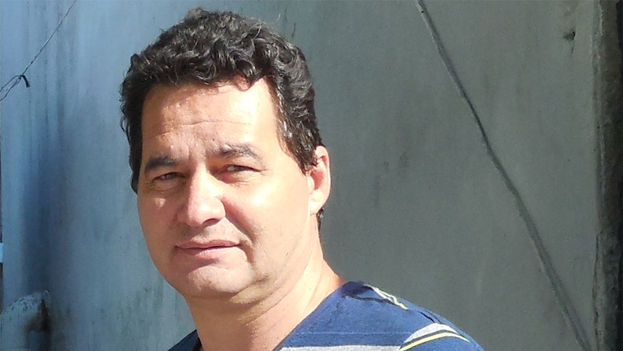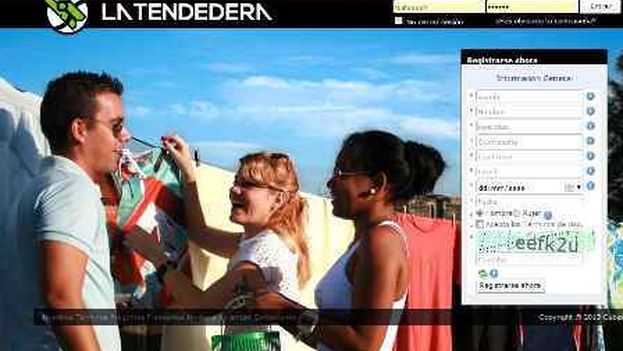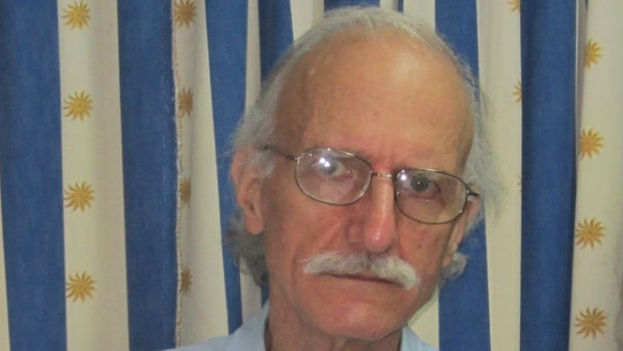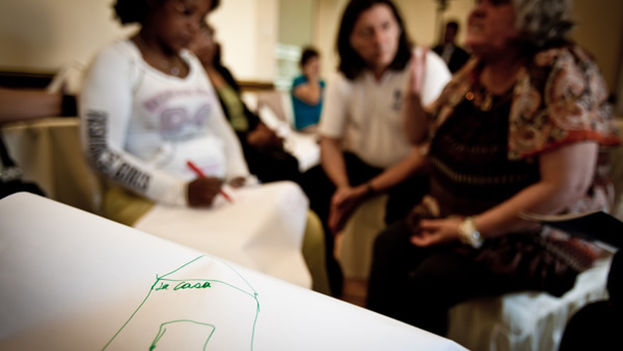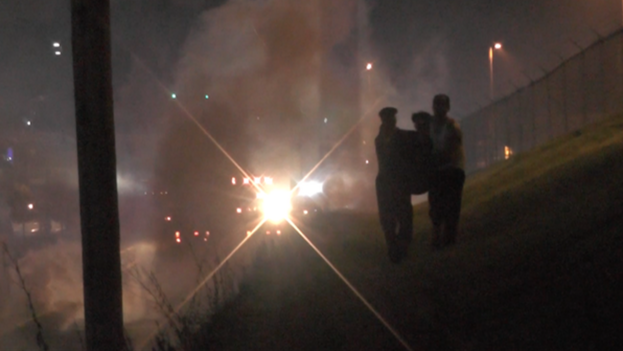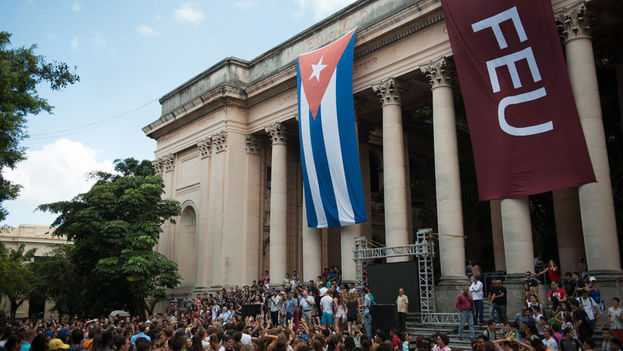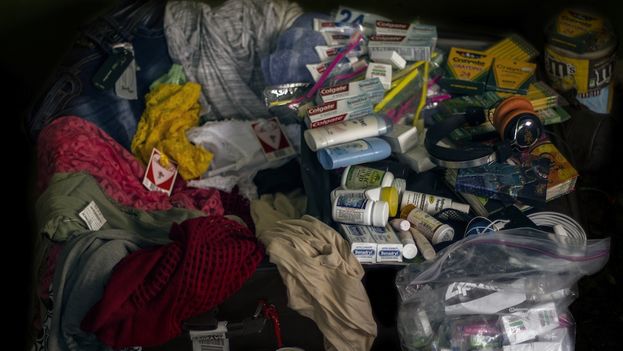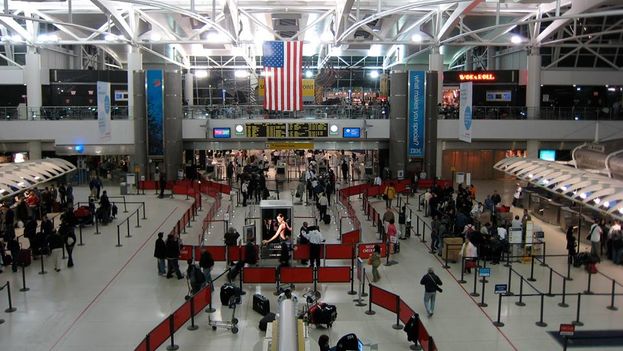
14ymedio, VÍCTOR ARIEL GONZÁLEZ, Havana, 8 December 2014 – She turned 24 and spent that day with her few friends who still live in Cuba. She is known as a faithful exponent of a generation marked by uprooting and escape. She decided to not complete her social service so that she could devote her time to making handicrafts and, thanks to her perfect English and various contacts, she also offers guided excursions to tourists. “My degree in languages does not pay for itself,” Camila admits.
Seated in her backyard, she shares that this was where colleagues from her faculty, as well as classmates from prep school, used to come for gatherings. Camila’s yard was “the party place,” as recognized on an amusing handmade “diploma” that she keeps in a frame on her wall. There are still some festivities held there, except that now these have been occurring less frequently because “everyone has been taking their own path…you know.”
I do know. And the gesture Camila makes with her hand, like an airplane taking off, confirms this. To prove her point, she adds, “Have you ever counted how many contacts you’ve had to remove from your contacts on your phone?” and then goes on to recount how, on her birthday, more people called her from foreign countries than from Cuba.
Camila tries to make light of this fact, perhaps without meaning to do so, with a subversive smile. However, she cannot mask the subtle aroma of yearning released by her words. Today she has friends in Europe, Asia and even Australia – but the US is her “second Island” because more than half of her absent friends are now residing there. She has had to update their phone numbers on her contacts.
Even so, the new area codes in Camila’s contacts are in contrast to the old photos that appear on her mobile phone screen. She doesn’t want to forget that they were taken here, when her friends were still living in Cuba and there weren’t so many calls as visits and well-attended gatherings – be they “to study for a test or to have a drink, or both.” Camila’s vision of the present for young people like us can be summed up thus: “Our generation is mortgaged. It is going to take many years for us to pay this spiritual debt – if indeed we still can.”
Her phrase, which I stole, is so impactful, that any other word is just unnecessary. “And who do you think,” I later ask Camila, “might join the list of those who call you from outside Cuba on your next birthday?” She raises her eyebrows and laughs, saying, “The way I see things, and if everything goes according to plan, perhaps I will be the one to call from outside Cuba on my next birthday, so that those whom I’ve left behind can give me their good wishes. The most likely thing is that you will have to change my number on your contacts.”
Translated by: Alicia Barraqué Ellison

